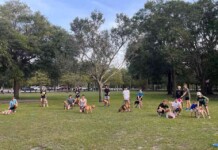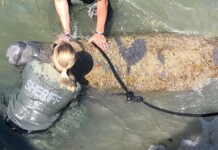A 13-year-old boy has just been named America’s Next Top Young Scientist in recognition of his ingenious method for making pancreatic cancer treatment more effective.
Rishab Jain was awarded the prize for creating an algorithm that used artificial intelligence to accurately locate and target the pancreas in real-time during a cancer patient’s MRI radiotherapy.
Pancreatic cancer is the third-leading cause of cancer-related deaths in the United States. An inherent challenge of radiation treatment for pancreatic cancer resides in tracking where the pancreas itself is located on any given day. Firstly, it is often obscured by the stomach or other nearby organs, which makes it difficult to locate. Furthermore, breathing and other anatomical changes may cause the pancreas to move around in the abdominal area. As a result, radiotherapy treatment can inadvertently target and impact healthy cells.
“Last summer, I went to visit my brother in Boston and came to know about some pancreatic cancer research and how difficult a problem it was to solve,” Rishab told Good News Network. “I learned about how deadly the disease was and how it had such a low survival rate. At the same time, I was also learning about artificial intelligence and wondered if I could apply my knowledge to solve this real-world problem – I also had a family friend pass away from this disease.”
RELATED: Boy Thought to Be Nonverbal Can Speak After Dentist Discovers He is Simply ‘Tongue-Tied’
Rishab then developed and tested his algorithm using images of the human digestive system, and found it could correctly detect the pancreas with a 98.9% success rate. The innovation aims to improve accuracy, reduce invasiveness and increase efficiency during treatment, resulting in better quality of life and chance for survival among patients.
The teen, who attends seventh grade at Stoller Middle School in Portland, Oregon, competed alongside nine other finalists during a live competition at the 3M Innovation Center in St. Paul, Minnesota. In addition to receiving the Top Young Scientist prize, he was also awarded a $25,000 prize.
“My eyes almost filled with tears after hearing my name announced—I was blown away to receive the title,” Rishab gushed. “For the past year, I’ve been working on this project and have been putting in a tremendous amount of hard work. It’s amazing to see my project coming along, and all the challenges and fun I had along the way.”
(WATCH the video below) – Photo by Discovery Education / Andy King
Be Sure And Share This Inspiring Story To Social Media For Your Friends





















Wow wow wow! What an incredible discovery! Best wishes for your best discoveries!